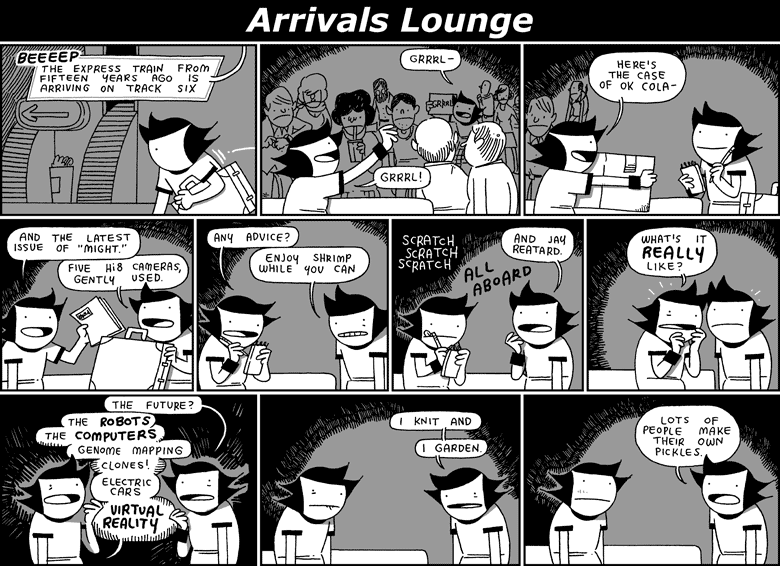I was rooting around in my computer when I spied a text file from 2005 that I apparently wrote for an online debate about prehistoric agriculture in New Guinea. Googling an entire paragraph verbatim reveals that it was for a message board discussion of Jared Diamond’s book, Collapse: How Societies Choose to Fail or Succeed. The mini-essay was fairly well-reasoned, made reference to some current scientific knowledge, and synthesized information gleaned from several academic sources not easily accessible to the layperson. It was mostly ignored except by one person who clearly based his objections on self-taught stuff gleaned mostly from the Internet. The “debate” quickly petered out after I made my contribution and the message board thread sank out of sight into the archives.
Jesus, why did I even bother? Looking at the date, it appears that I wrote the mini-essay in my first semester of graduate school. I suspect that I was trying to distract myself from the fact that at the time I was living in a tiny, crappy apartment where I could hear the slapping sounds of my neighbour having sex with his girlfriend. That and I was probably trying to fill the loneliness of moving to a new city. Yes, I hung out with my grad school cohort but we all had our own shit to shovel, our own rows to hoe, so to speak, and the alienation of the modern city can get pretty acute when you’re living by yourself and you don’t know anyone living nearby well enough to call friend.
I’m reminded of this New York Times article about what Internet trolls are like offline. Who could have known – from the content I’d written on the message board – of the specific personal circumstances that fueled my frustration at dealing with the ignorant and the misinformed who’d dared misconstrue the knowledge of my chosen field of study. I was especially annoyed because the message board is the adjunct to a newspaper trivia column that specifically bills itself as “Fighting Ignorance Since 1973”, when in my experience the board was and is a bastion of white privilege and anti-feminist “common sense”. I finally had to quite the message board when I saw how often the same topics came up over and over. I’m kind of back now, but I decided not to read any topics that involved race, gender or American politics in an attempt to prevent my demise from apoplexy.
Anyway, I’m embarrassed at having spent so much time and effort on what was in the end an inconsequential matter, though I suppose helping to correct popular misconceptions is a decent hobby for an aspiring anthropologist (god knows a lot of anthropological knowledge directly contradicts mainstream ideas about human nature). Still, there are only so many hours in a day and only so much energy in one person. Better to do things that one actually likes.
